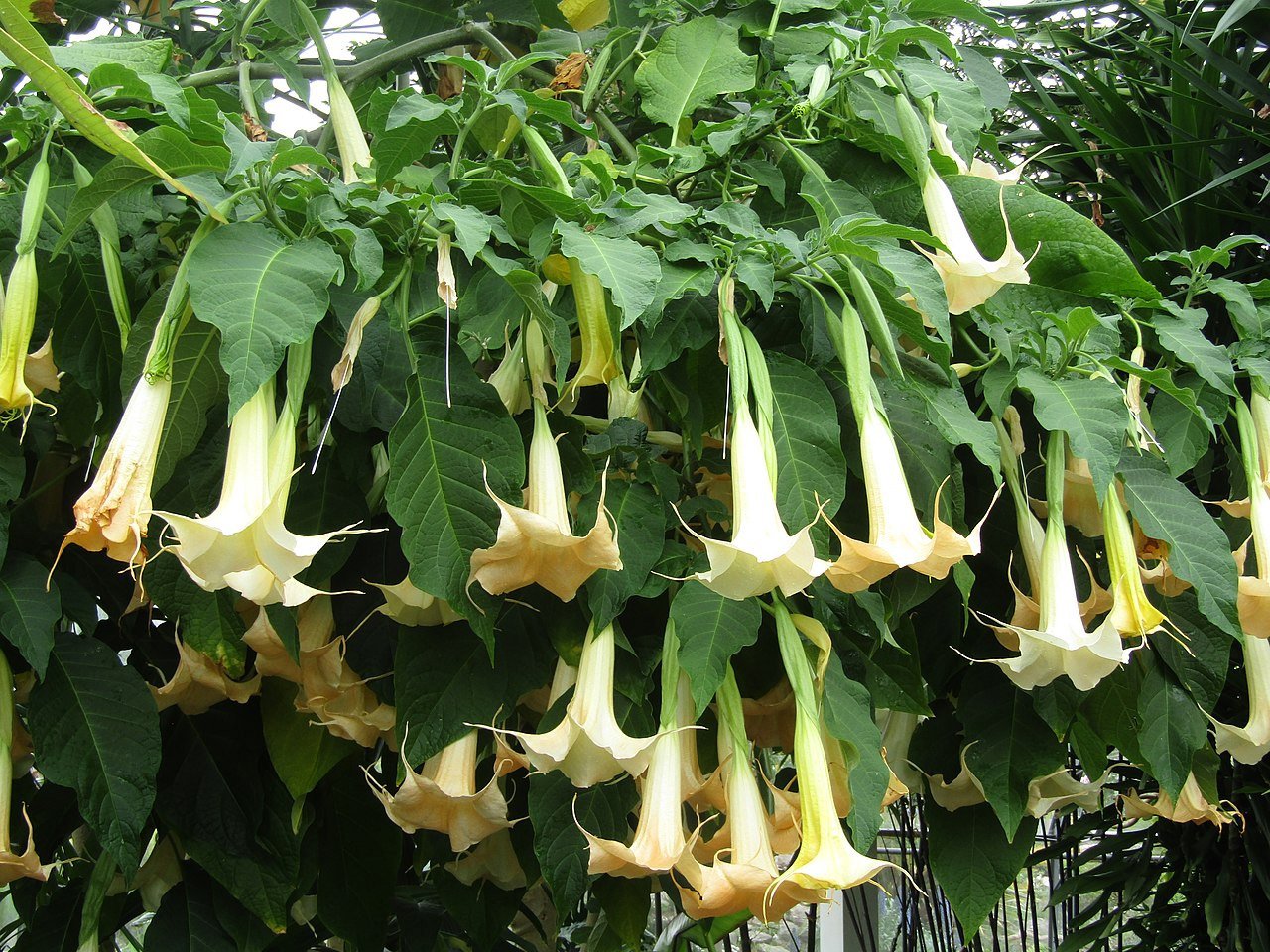Name: Brugmansia (Brugmansia Suaveolens)
Otherwise known as: Angel’s Trumpets, Tree Datura
Habitat: A perennial shrub or small tree member of the Solanaceae family growing to about 4m in poor soil and native to South America. It has hairy, elliptical, deeply-veined leaves with abundant aromatic, drooping, yellow, trumpet-shaped flowers that can grow to about 20cm. The flowers transform into a round capsule that contains ten brown, kidney-shaped seeds. All parts of the plant are toxic.
What does it do: The plant is a member of the same family as Deadly Nightshade (Atropa Belladonna) and contains tropane alkaloids such as scopalomine and atropine; a small number of seeds can prove fatal.
In its native surroundings it is used by the Amerindian tribes in their Shamanistic ceremonies to expel demons, predict the future, locate criminals and lost property; It was also used to kill. The Toltecs mixed it with maize beer and forcibly administered it to widows who were about to be buried alive with the departed spouse to ensure they didn’t complain.
European herbalists use dry Brugmansia leaves in cigarette form to smoke for relieving asthma. They also make poultices by mixing the leaves with pig fat to treat rheumatic and arthritic conditions as well as haemorrhoids, scalds and burns. The plant has proven to be of value to those suffering from Parkinson’s disease by diminishing the tremors and strengthening the voice. It is sometimes mixed with Cannabis Sativa.
Alexander McCowan is author of The World’s most Dangerous Plants







Click here to change your cookie preferences